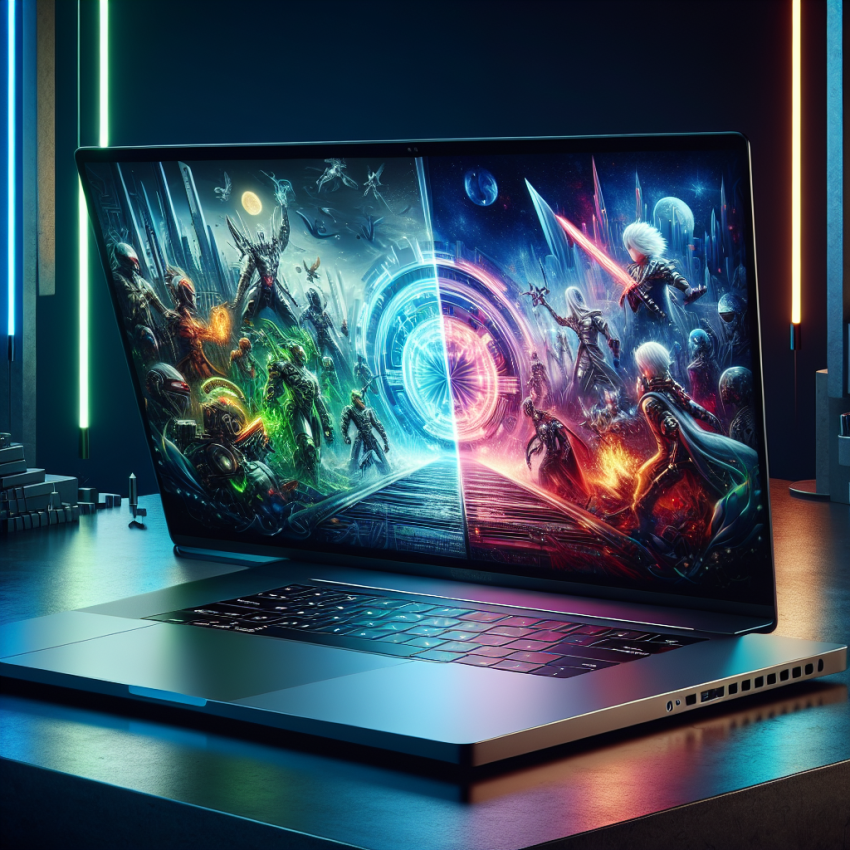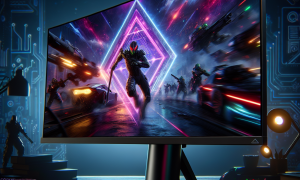With the advent of the Asahi Linux project, AAA gaming on the Apple M1 chip is no longer a distant dream but a tangible reality. Recent developments show that popular titles like *Cyberpunk 2077* and *The Witcher 3* are now playable on MacBooks, and performance metrics suggest respectable frame rates, enhancing the gaming experience for Apple users.
The Emergence of Asahi Linux
The journey to transform the Apple M1 silicon into a gaming powerhouse began with the Asahi Linux project. This initiative aims to bring the Linux operating system to Apple Silicon machines, enabling users to run native Linux applications and games on their devices. The project has made significant strides, particularly in optimizing gaming performance, which is crucial for attracting a new demographic of gamers who use MacBooks.
Key Features of Asahi Linux
The latest build of Asahi Linux boasts several impressive features that contribute to the successful run of AAA games on Apple M1 devices:
1. Optimized Graphics Drivers
2. Enhanced Game Compatibility
3. Performance Tuning
By maximizing the hardware capabilities of the M1 chip, Asahi Linux has opened the doors for gaming enthusiasts to explore a whole new world of gaming possibilities on their MacBooks.
Playing AAA Titles on Apple M1
The excitement around Asahi Linux is primarily fueled by the successful performance of heavyweight titles like *Cyberpunk 2077* and *The Witcher 3*. Whereas these games are traditionally inaccessible to Mac users, the new developments have shifted that paradigm.
Cybperpunk 2077
*Cyberpunk 2077*, known for its ambitious open-world design and intricate graphics, manages to run on the M1 with surprising efficiency:
Performance Metrics
The game’s complex environment and demanding graphics don’t just push the limits of hardware; they also test the capabilities of the linux-based operating system. However, the responsiveness of the controls and the visuals remain intact, allowing players to immerse themselves in the vibrant Night City.
The Witcher 3
Another accolade for Asahi Linux is its ability to run *The Witcher 3*, another visually stunning AAA game. Known for its rich storytelling and expansive world, *The Witcher 3* delivers a smooth gaming experience:
Performance Metrics
The ability to traverse the Continent seamlessly on the M1 is a testament to the optimizations made by the Asahi Linux community. Players can engage in high-stakes battles and intricate quests without significant lag or stuttering.
Why AAA Gaming on M1 Matters
The significance of AAA gaming capabilities on Apple M1 devices transcends mere gaming metrics. Here are a few reasons why this development is crucial for the gaming and tech landscape:
1. Expanding Market Reach
2. Community Development
3. Platform Versatility
The implications of AAA gaming compatibility on Apple hardware are profound, suggesting a future where users can seamlessly switch between productivity and play.
Considerations for Gamers
While the recent achievements are impressive, there are important considerations for potential gamers using Apple M1 devices:
1. Compatibility and Updates
2. Performance Expectations
3. Gaming Accessories
Staying informed will empower gamers to maximize their experiences on the Asahi Linux platform, ensuring that they enjoy the highest quality of gameplay possible.
Conclusion
The debut of AAA gaming on Apple M1 via Asahi Linux has forever changed the perception of MacBooks in the gaming community. By bridging the gap between hardware capabilities and gaming functionality, Asahi Linux allows Apple users to enjoy high-quality gaming experiences that were previously unimaginable. As the project advances, the potential for greater optimization, a wider range of game availability, and improved multiplayer interactions holds exciting future possibilities. Apple users can finally rejoice in the knowledge that they, too, can engage with the enthralling world of AAA gaming.
Citation: AAA gaming comes to Apple M1 thanks to the latest Asahi Linux build — Control, Cyberpunk 2077, and The Witcher 3 are playable with respectable frame rates written by Aaron Klotz









